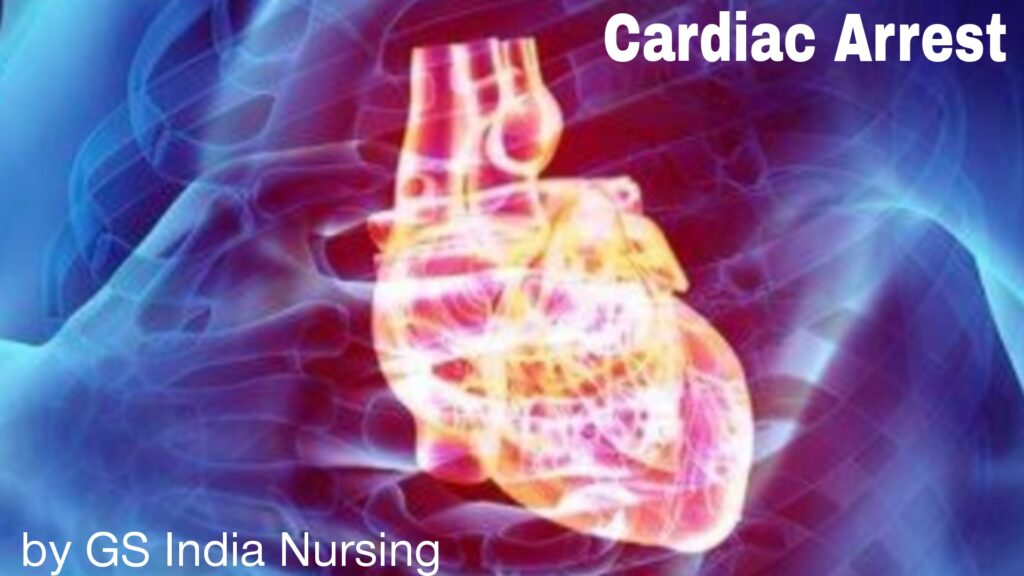Definition:- Sudden, unexpected loss of heart function, breathing and consciousness. (OR). It is defined as the cessation of effective pumping action of heart. Which commonly occurs when the muscles fibres of ventricles start to beat rapidly without any blood ( ventricle fibrillation ) or when the heart stop beating completely (asystole).
Causes:-
- Myocardial infraction (MI).
- Cardiac electrical event.
- Loss of blood.
- Arteriosclerosis.
- Atherosclerosis.
- Coronary artery disease.
- Stenosis
- Spasm.
- Aneurysm.
- Thromboembolism.
- Myocardial trauma.
- Smoking.
- Highly oily food.
- Obesity.
- Sedentary Lifestyle.
- Use of cocaine.
Symptoms:-

- Prolonged severe pain.
- Pain radiates to left arm.
- Pain for 12 hours or more.
- Impending doom.
- Excessive fatigue.
- Shortness of breath.
- Coldness of extremities.
- Diaphoresis.
- Severe anxiety.
- Excessive restlessness.
- Dizziness.
- Palpitations.
- Fainting.
- Unconsciousness.
Complications:-
- Cardiac arrhythmia.
- Heart failure.
- Cardiogenic shock.
- Left ventricular rupture.
- Ventricular aneurysm.
- Thromboembolism.
- Death.

Diagnosis:-
- Blood investigations.
- Electrocardiogram (ECG).
- Coronary angiography.
- Serum enzyme study (Creatinine kinase). Cardiac arrest diagnosis, blood test to check the levels of potassium, magnesium harmon and others chemicals that may affect your heart’s, ability to function properly. Other test like electrical system ( electrophysiological) testing and mapping. Coronary catheterization, (angiogram) ejection fraction testing.
Management:- CPR in the first management of cardiac arrest.
CPR ( Cardiopulmonary Resuscitation). Is only emergency management for this cases. CPR, An emergency procedure for life support, consisting of artificial respiration and Manual external cardiac massage. It is used in cases of cardiac arrest or apparent sudden death resulting from electricals shock, drowning, respiratory arrest.
Treatment:- there are three groups of drugs relevant to the management of cardiac arrest. antiarrhythmics, and other drugs such as sodium bicarbonate, calcium magnesium, atropine, fibrinolytic drugs and corticosteroids.
I hope that you liked this article…….!!
Thanking you………!!
by GS India Nursing……..!!